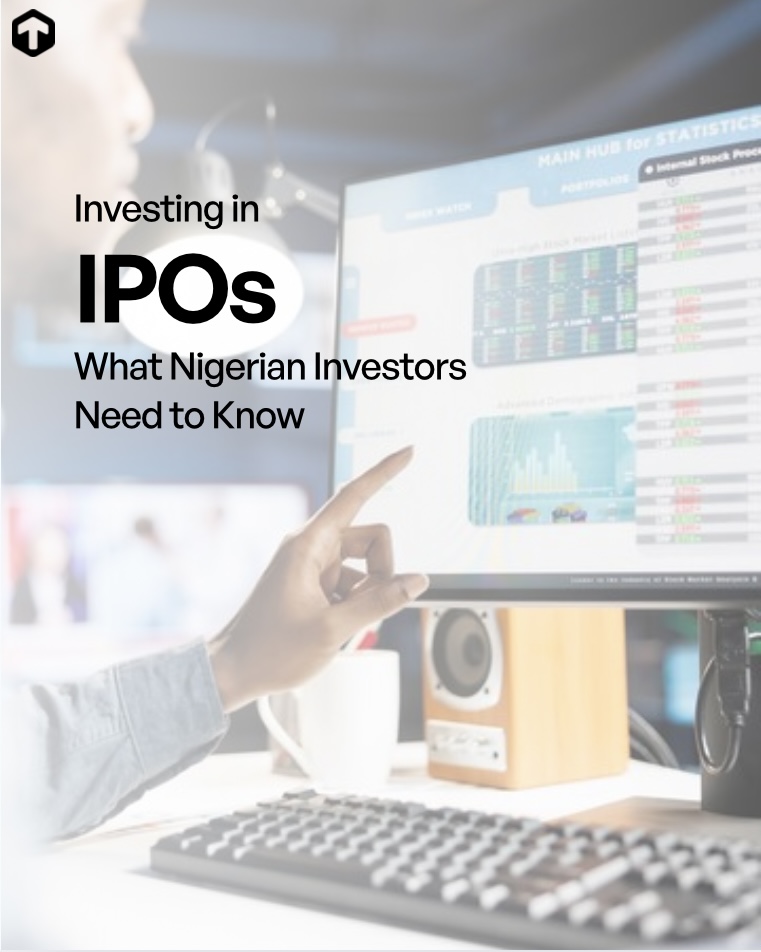One thing I’ve learned from exploring investment options is that IPOs can be very rewarding. Investing in Initial Public Offerings (IPOs) is exciting. Imagine being part of a company’s journey from its first day on the stock market especially a company with potential growth. That’s fantastic
IPOs can offer great opportunities if you know how to invest wisely. In this post, I’ll help you understand everything you need to know about IPOs, so you can make informed decisions.
What is an IPO?
An Initial Public Offering (IPO) is when a private company decides to sell its shares to the public for the first time. It’s like a grand debut where a company goes from being privately owned by a small group to having its shares available for everyone to buy on the stock market. In other words, when a company sells its shares, it is no longer a private company but a public company where anyone can own a slice of the company.
For you as an investor, an IPO is an opportunity to become part of a company’s growth story. It might be a startup looking to expand or an established company raising funds for new projects, IPOs are a chance to get in on the ground floor of something potentially huge.
Why Should Nigerian Investors Care About IPOs?
Now you know what Initial public offering means (IPO) You might be wondering, “Why should I invest in an IPO when there are other options like mutual funds or treasury bills?” Great question! Here are a few reasons why IPOs might be worth your consideration:
- Potential for High Returns: Investing early in a company’s growth can yield significant profits if the company performs well. Many investors have seen their investments multiply after an IPO.
- Access to Promising Companies: IPOs give you the chance to invest in companies that were previously private. Some of these companies might be game-changers in their industries.
- Portfolio Diversification: IPOs can add variety to your investment portfolio, reducing risk by spreading your investments across different asset types.
- Supporting Local Businesses: Many Nigerian companies offer IPOs to raise capital for expansion. By investing, you’re not just growing your wealth; you’re contributing to the growth of the local economy.
How IPOs Work in Nigeria
1. The Announcement Stage
Companies planning an IPO usually make an official announcement through the Nigerian Exchange Group (NGX), financial news platforms, and brokerage firms. At this stage, you’ll find details about the company, the number of shares being offered, and the price per share.
2. The Prospectus
Once an IPO is announced, the company releases a document called a prospectus. This document provides all the essential information about the company, including its financial performance, business model, growth plans, and risks. Take your time to read and understand it.
3. Subscription Period
During the subscription period, you’ll have the opportunity to apply for shares. You’ll need to work with a licensed stockbroker to place your order. Many brokers in Nigeria now offer digital platforms, making the process easy and accessible.
4. Allotment of Shares
After the subscription period ends, the company allocates shares to investors. If there’s high demand, you may not get all the shares you applied for. This process is known as allotment.
5. Listing on the Stock Exchange
Once the IPO is completed, the company’s shares become available for trading on the Nigerian Exchange (NGX). At this point, you can decide whether to hold your shares for long-term gains or sell them on the stock market.
What to Consider Before Investing in an IPO
Investing in IPOs isn’t a guaranteed path to riches. To make informed decisions, keep these factors in mind:
1. Do Your Homework
Research the company thoroughly. Understand its business model, financial health, and competitive position in the industry. The prospectus is a good place to start, but don’t stop there—read news articles, check industry trends, and ask your broker for insights.
2. Assess the Risks
Like any investment, IPOs come with risks. The company’s stock price could drop after the IPO, especially if market conditions are unfavorable or the company doesn’t meet investor expectations.
3. Set Clear Goals
What are you hoping to achieve by investing in an IPO? Are you looking for long-term growth or quick profits? Knowing your goals will help you choose the right IPOs to invest in.
4. Understand the Pricing
IPO shares are typically priced based on the company’s valuation. Sometimes, the price may seem high, but that doesn’t necessarily mean it’s overpriced. Compare the valuation with other companies in the same industry to determine if it’s a fair deal.
5. Consider the Timing
Market conditions play a significant role in the success of an IPO. If the market is bearish, even a strong company’s IPO may underperform. Keep an eye on economic and market trends.
Common Mistakes to Avoid When Investing in an IPO
- Skipping Research: Don’t invest based on hype or recommendations alone. Always do your own due diligence.
- Overcommitting Funds: Avoid investing more than you can afford to lose. Remember, IPOs can be volatile.
- Ignoring Red Flags: Pay attention to warning signs in the prospectus, such as declining revenues or excessive debt.
- Chasing Quick Profits: While it’s tempting to sell immediately after the IPO, consider the long-term potential before making a decision.
The Role of Platforms Like Trove Finance
Platforms like Trove Finance make it easier for you to participate in IPOs. With the Trove app, you can:
- Access both local and international IPOs.
- Monitor your investments in real time.
By simplifying the investment process, Trove removes many of the barriers that prevent Nigerians from exploring IPO opportunities.
Conclusion
Investing in IPOs can be a rewarding journey, but it’s not without its challenges. By understanding the process, doing your research, and setting clear goals, you’ll be well-equipped to make informed decisions. Also, to invest in an IPO, you must have a brokerage account. Remember, every successful investor started somewhere, and today could be the start of your own journey.




